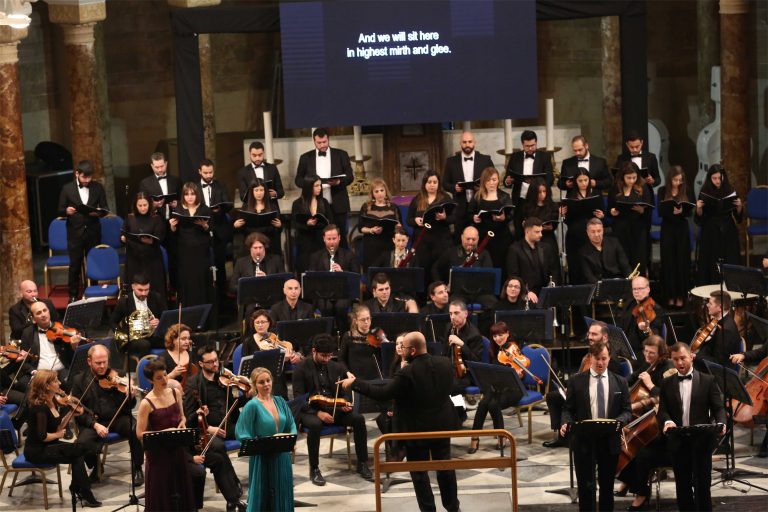When the August 4 explosion rocked Beirut, the Lebanese tenor Bechara Moufarrej was busy releasing his album “Road Trip.” He was excited to see his fans’ reactions, especially since it blends Oriental and Western music. In the aftermath of the disaster, the Lebanese tenor could not stand by and ignore its ramifications on the areas it obliterated and the people it harmed. So, he decided to launch a musical initiative to help those hurt by the explosion, and the song “Salam Li Bierut” (To Beirut with Peace) was born.
Written by Father Youhana Geha and composed by Fadi Kassis, the piece is the fruit of collaboration between Munich and Beirut.
In an interview with Asharq Al-Awsat, Bechara Moufarrej explains: “This cooperation materialized through musician friends of mine who have close ties with the National Theater in Munich. From there, we came into contact with the German Ministry of Culture, which welcomed the idea of sponsoring a song that pays tribute to Beirut in the aftermath of the August 4 explosion.
Commenting on the song and its lyrics, he says: “At the beginning, my friend Fadi Kassis sent me the melody and told me I could use it for a song whose lyrics I could personally choose. After the disaster struck Beirut, I immediately thought of the melody and decided to turn it into a song that pays tribute to the afflicted capital. After contacting several poets in Lebanon, I chose Father Youhanna Geha. He understood the concept that I wanted to put into words with a song to my city, and it became akin to a prayer. Thus, the piece entitled One Thousand and One Nights, which I filmed in Lebanon’s Grand Theater, was born.
It was done in collaboration with the Bavarian State Opera orchestra and the German soprano Felicitas Fuchs-Wittekindt. From Lebanon, the Antonine University Choir and the maestro Tawfiq Maatouk took part.
Bachara thoroughly enjoyed working with the German musicians and institutions, telling us that “the German soprano Felicitas was very excited about singing in Arabic as part of a work dedicated to a capital she knew well. She has visited the city and has friends there. She learned Arabic and sang it in her wonderful style, putting her mark on the song with her elegant voice.”
He adds: “Working in Munich, with one of the most prominent orchestras in Europe, was an honor unlike any other I had ever been granted. A work of this kind costs more than half a million euros. Nevertheless, the German Ministry of Culture generously undertook this initiative for Lebanon.”
The song, which aims to draw online donations to help those hurt by the explosion, was produced in Munich and Beirut, in cooperation with the German “Schulterschluss Initiative.” Which the tenor explains: “is a well-known organization that helps the displaced in Lebanon.”
He adds that the organization suggested filming the piece in the Grand Theater, as those who run it are aware of its prominence during Beirut’s glory days.

